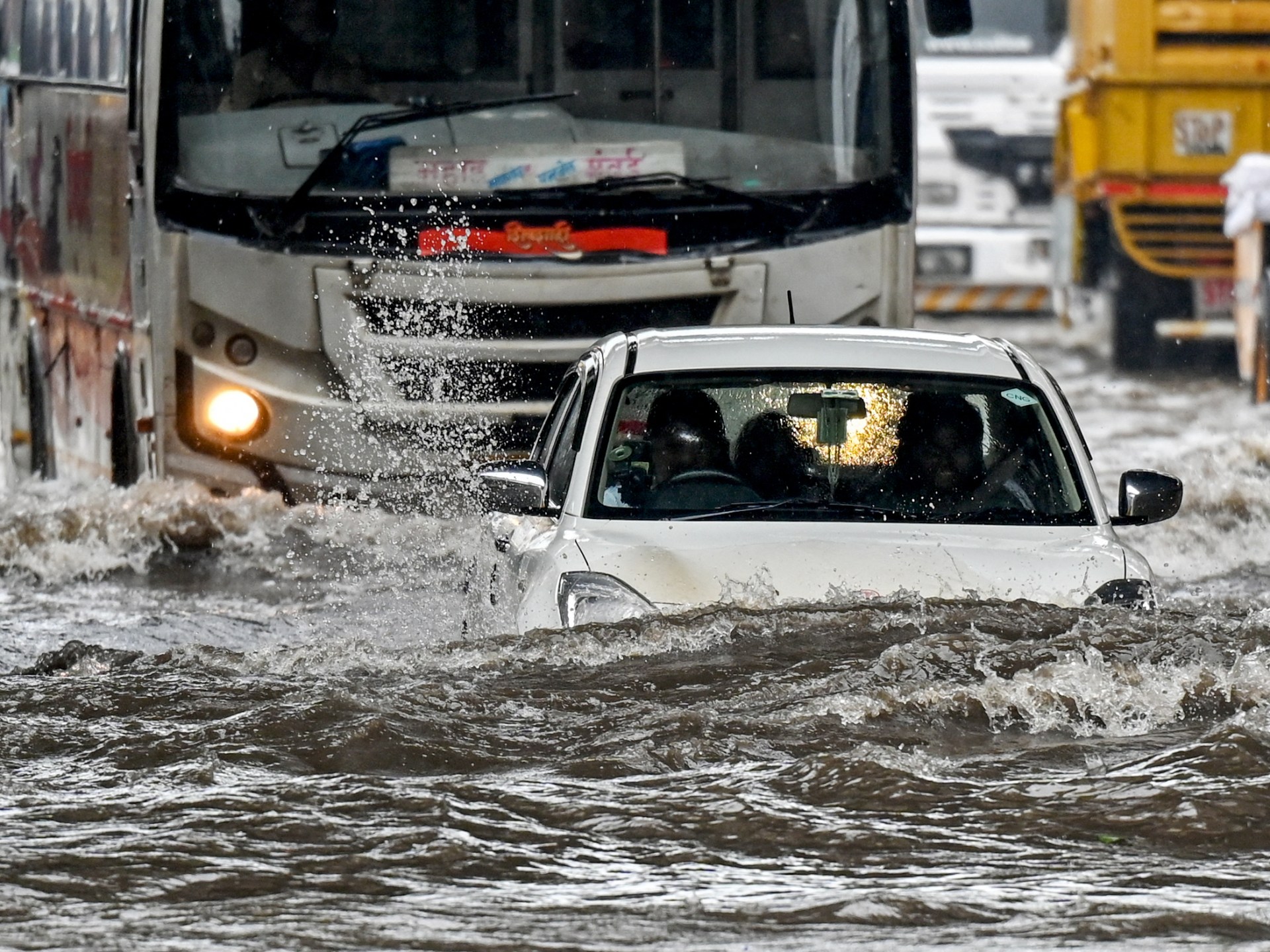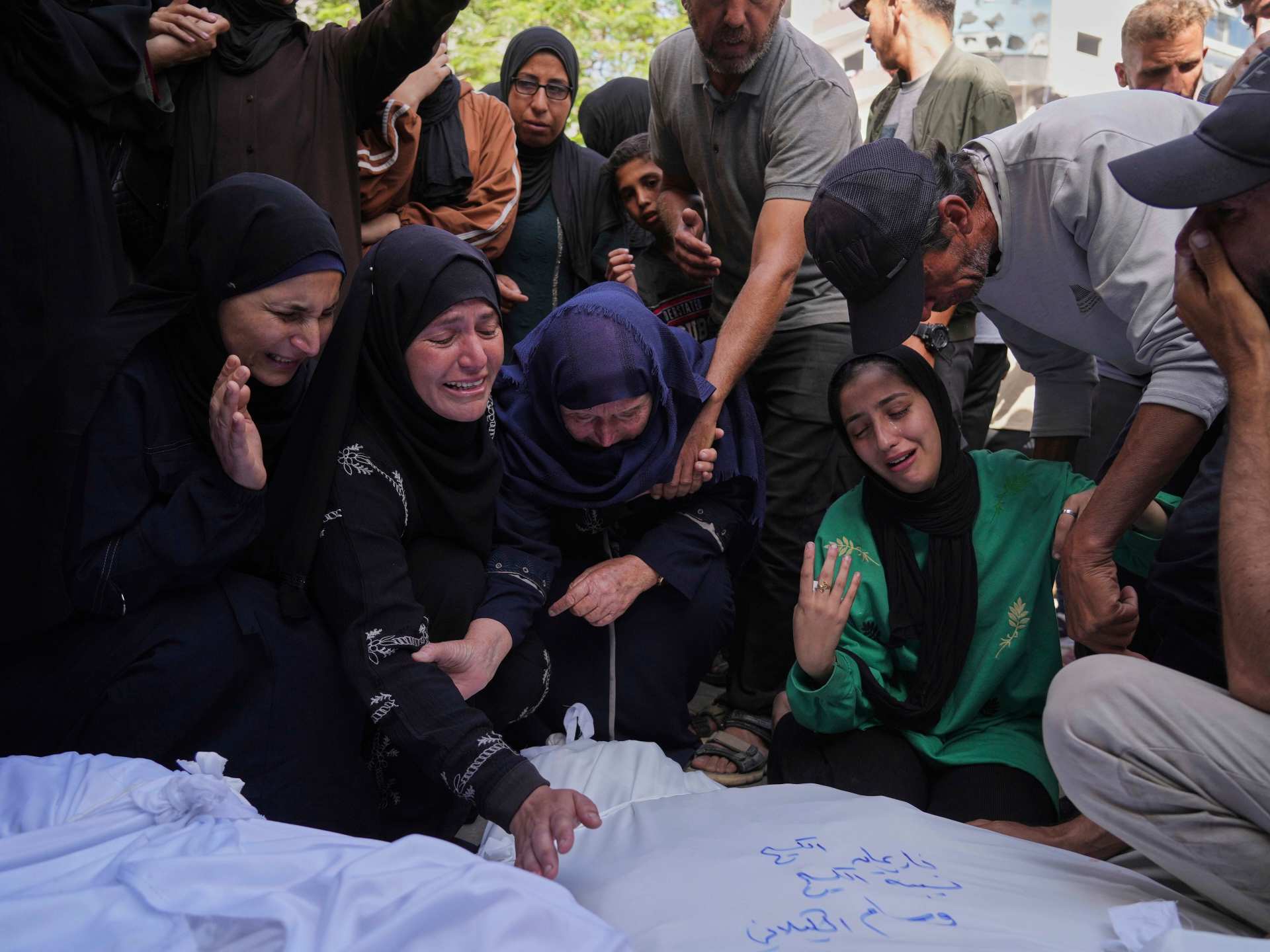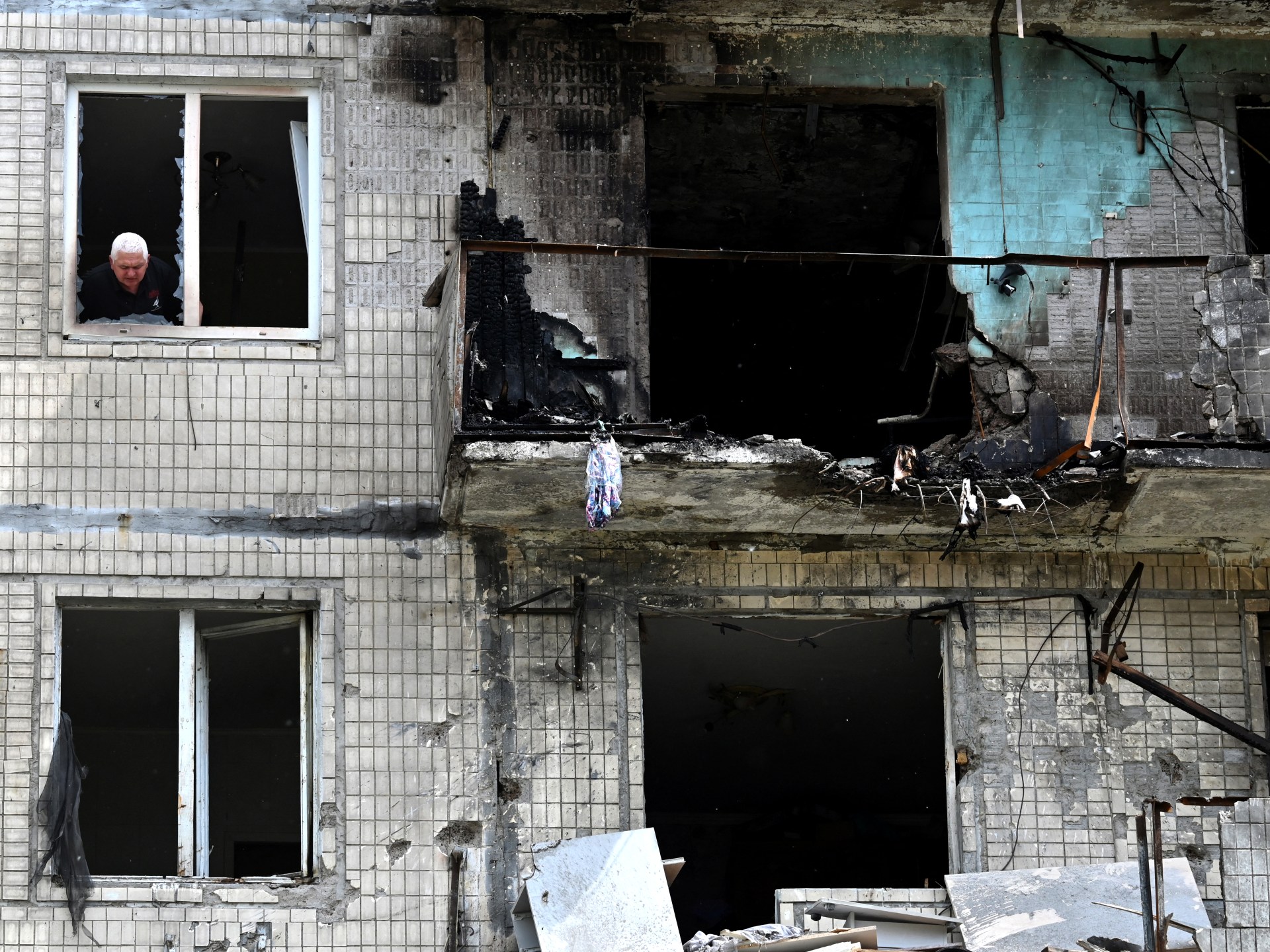A car ploughed into a crowd of Liverpool fans on Monday evening, injuring 47 people, including four children. The incident took place during a Premier League victory parade through Liverpool’s city centre by the city’s official football team.
Here is what we know about the incident, victims, suspect and rescue efforts.
What happened?
Just after 6pm (17:00 GMT) on Monday, a car crashed into a crowd of Liverpool fans who were celebrating Liverpool’s victory in the Premier League football title.
The fans had gathered to catch a sight of the Liverpool football team, who had paraded the trophy through the area in an open-top bus moments before the incident. The car crash took place about 1 mile (1.6km) before the finishing point of the 10-mile (16km) parade.
Videos circulating on social media showed the car zigzag through the crowd of fans ostensibly clad in Liverpool FC merchandise. Several people were thrown into the air as they were hit by the car.
The Merseyside Police said they were called soon after the incident.
As the car came to a stop, angered members of the crowd swarmed towards it, smashing its windows. The police had to intervene to prevent them from getting to the driver.
Who was driving the car in Liverpool?
The police said they arrested a “53-year-old white British man from the Liverpool area” who they believed was driving the car.
They have not released any additional details about the driver or his motivations yet.
Where in Liverpool did the crash take place?
The crash took place on Water Street, which is in the city centre and near the Strand. The street is home to historic buildings, including the office block, Oriel Chambers, built in 1864. Liverpool is located towards the northwest of England.
What do we know about the victims?
Dozens of people, including four children, were injured in the incident.
Out of the victims, 20 people sustained minor injuries and were treated at the scene, not requiring hospital treatment. Another 27 people were taken to a hospital by ambulance. Authorities said two of the people hospitalised, including one child, have sustained serious injuries.
Is the incident being treated as ‘terrorism’?
The police said the incident was not being treated as a “terrorism case”.
“We believe this to be an isolated incident, and we are not currently looking for anyone else in relation to it. The incident is not being treated as terrorism,” Jenny Sims, temporary deputy chief constable, told reporters.
“I would urge people not to speculate as to the motives behind this appalling incident and to allow Merseyside police to conduct their investigation,” Liverpool City Council leader Liam Robinson said during a news conference late on Monday.

What action did the authorities take?
Late on Monday, police officer Sims told a media briefing that several people were treated at the scene and many were taken to hospital.
She added that the police force’s emergency services colleagues from the North West Ambulance Service (NWAS) and Merseyside Fire and Rescue Service (MFRS) were also present at the scene.
NWAS officer Dave Kitchin said ambulances were dispatched, as well as a hazardous area response team, an air ambulance, doctors and senior clinicians to the site.
“Our emergency ambulances took patients to our NHS colleagues at Royal Liverpool, Alder Hey, Arrowe Park and Aintree Hospitals,” Kitchin said, referring to the hospitals the injured were taken to.
Nick Searle, MFRS chief fire officer, told the news conference that, after learning about the incident, they promptly dispatched three fire engines to Water Street. “Our crews rapidly lifted the vehicle, removed people from beneath and passed them to our ambulance colleagues.”
Liverpool City Council leader Robinson told the news conference that the incident “cast a very dark shadow over what had been a joyous day”.
“We are working closely with Merseyside Police to support their investigation, and with other relevant organisations to make sure those affected get the appropriate support,” he added.

What is the latest on the ground?
In an update on X on Monday evening, NWAS wrote that it had “cleared the scene following the incident in Liverpool”.
“Specialist officers have been put in place to support the injured and their families,” Sims said.
She requested people to refrain from sharing the “distressing footage” of the incident, adding that information, including video footage, can be submitted to the Major Incident Police Portal (MIPP).
“My fire crews will maintain a visible and reassuring presence in the coming days and weeks,” MFRS’s Searle said.

What are the reactions to the Liverpool crash?
“The scenes in Liverpool are appalling — my thoughts are with all those injured or affected,” British Prime Minister Keir Starmer wrote in an X post. “I want to thank the police and emergency services for their swift and ongoing response to this shocking incident.”
The scenes in Liverpool are appalling — my thoughts are with all those injured or affected.
I want to thank the police and emergency services for their swift and ongoing response to this shocking incident.
I’m being kept updated on developments and ask that we give the police…
Liverpool Mayor Steve Rotheram said: “Our hearts go out to all of those affected, especially those who have been injured. Thank you, as ever, to the first responders for their professionalism and swift action.”
Our hearts go out to all of those affected, especially those who have been injured.
Thank you, as ever, to the first responders for their professionalism and swift action.
This is a difficult day for our city region, but we stand together. https://t.co/ua4xSY2UjX
Car crash to crowd crushes: Is this a first for Liverpool fans?
Sadly, no. Liverpool fans have previously been killed and injured in stampedes, clashes with rival fans, or in deliberate attacks. And fans of other clubs have suffered as a result of Liverpool fans’ aggression.
In 1985, during the European Cup final between Liverpool and Juventus at Heysel Stadium in Brussels, Belgium, Liverpool supporters charged towards Juventus fans. The Juventus fans were pressed against a wall, which collapsed, crushing some of the fans: 39 people died and 600 were injured. Most of the victims were Juventus fans or other Italians watching the match.
In 1989, a deadly crowd crush at the West Stand of Hillsborough Stadium in Sheffield, England, killed 97 Liverpool fans during an FA Cup match between Liverpool and Nottingham Forest.
One of the victims died aged 55 in 2021 after sustaining life-changing injuries during the crush. While unruly fans were initially blamed, it was ultimately concluded that it was mismanagement by the police that caused the crush. Fans were allowed to enter the overcrowded stadium.
More recently, in April 2018, Sean Cox, a Liverpool fan and father of three, was attacked by fans of the Italy-based football club Roma before a Champions League semifinal match. The attack took place at the Albert pub near Liverpool’s Anfield Stadium. Cox was left with severe head injuries. In 2019, Roma fan Simone Mastrelli was sentenced to three and a half years in prison after he pleaded guilty. In April 2023, Cox was able to walk again with the help of an exoskeleton.





